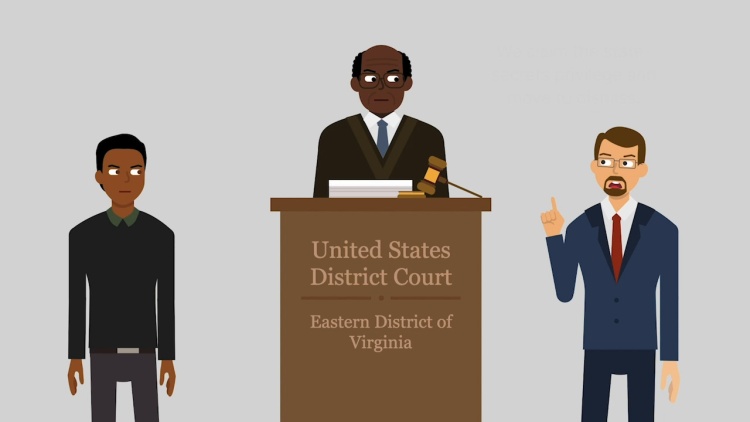El-Masri v. United States
United States Court of Appeals for the Fourth Circuit
479 F.3d 296 (2007)
- Written by Craig Conway, LLM
Facts
Khaled El-Masri (plaintiff) was clandestinely abducted by operatives of the Central Intelligence Agency (CIA) in Macedonia and taken to a United States detention facility in Afghanistan, where he was held and questioned for approximately five months under the belief that he was linked to terrorism. El-Masri was released after government authorities determined that his capture was a case of mistaken identity. El-Masri filed suit in federal district court against the CIA director and others (defendants) for damages arising from his detention. In his complaint, El-Masri asserted a Bivens claim pursuant to Bivens v. Six Unknown Named Agents of Federal Bureau of Narcotics, 403 U.S. 388 (1971), arguing that his Fifth Amendment right to due process had been violated, and also raised claims under the Alien Tort Statute. The defendants claimed that the facts and circumstances surrounding El-Masri’s capture and detention were protected by the state-secrets doctrine pursuant to 28 U.S.C. § 517. In support of the claim, the CIA director submitted two sworn declarations: (1) a unclassified document stating why the privilege was invoked and (2) a classified document providing the specific information sought to be protected from disclosure. After reviewing the two declarations, the district court granted the defendants’ motion to dismiss. El-Masri appealed.
Rule of Law
Issue
Holding and Reasoning (King, J.)
What to do next…
Here's why 907,000 law students have relied on our case briefs:
- Written by law professors and practitioners, not other law students. 47,100 briefs, keyed to 996 casebooks. Top-notch customer support.
- The right amount of information, includes the facts, issues, rule of law, holding and reasoning, and any concurrences and dissents.
- Access in your classes, works on your mobile and tablet. Massive library of related video lessons and high quality multiple-choice questions.
- Easy to use, uniform format for every case brief. Written in plain English, not in legalese. Our briefs summarize and simplify; they don’t just repeat the court’s language.





